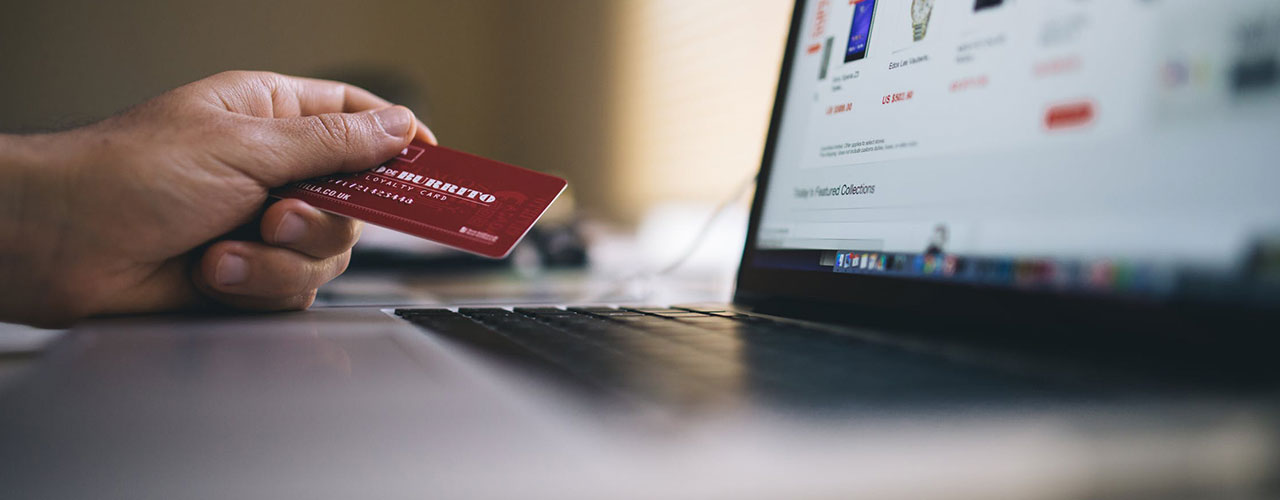
One of the biggest pandemic shopping trends has been the sudden, massive shift to online spending. We were already headed there. Covid merely sped up the inevitable. In the past year, as millions of people made their first e-commerce transaction, Walmart doubled the percentage of its members who shop online.
Don’t let all those password requests and online purchases lull you into a false sense of safety. The same rules apply that always have – as well as a few additional tips and tricks to add an extra layer of much-needed safety to your routine.
Think Twice About Where to Spend Your Dollars
A whole lot of online crime boils down to one thing: where consumers choose to spend their money. The most persistent type of fraud involves people getting fooled into sending their money to scammers.
The FBI’s Internet Crime Complaint Center reported that the biggest loss of money in 2018 was due to businesses and individuals sending money to investment scammers – to the tune of a whopping $1.3 billion, according to PC Magazine. Other, similar types of fraud included health care, romance, and lottery scams.
The good news is that’s something we can easily control. You may not consider yourself someone who would fall for such a thing, but it’s worth keeping in mind if an offer ever seems too good to be true.
Spend Money on Familiar Websites – and Research Unfamiliar Ones
Another common source of cyber crime is the non-delivery of goods. When online shopping, try to stick to familiar websites like those of major retail outlets, and beware of similarly spelled sites meant to trick shoppers. If an online shop you’ve never heard of catches your fancy – great! A web search will tell you more about its reputation and who runs it.
Meanwhile, if the URL for the site starts with HTTPS – instead of just HTTP – that indicates the presence of an SSL (secure sockets layer) encryption. That’s a sign your credit card number and other private information will be better protected.
Follow Smart Password Protocol
You’ve heard it a thousand times. Have strong, updated passwords. Over a third of people even admitted in one survey that they never change their online passwords. If that describes you, the passwords you have better be hard to crack. Better yet – change your online passwords! Once every few months should suffice. For extra accountability, consider using a free password manager to store, generate, and manage your unique passwords for e-commerce sites.
Keep a Steady Eye on Financial Accounts
Would you know if the wrong person got a hold of your most sensitive financial information? Most people don’t until finding a fraudulent charge on their credit card bill – and, increasingly, on sites like Venmo and PayPal, as well. Getting rid of those charges can be a pain, especially if you’ve already paid them.
Don’t wait for your bill payment deadline to review your monthly statements. Consumers should go online regularly, especially during busy shopping seasons, and review statements for credit cards, debit cards, and checking accounts. This leaves you more time to spot any suspicious charges and dispute them if necessary.
Keep Your Cyber Security Up-to-Date
If you’ve been following our blog to stay financially smart, then you may already know about keeping your cybersecurity up to snuff. A few simple steps can go a long way in protecting you against internet-related threats, including ones that take place at checkout. As a refresher:
- Secure your network by using a firewall.
- Use anti-virus and spyware software to protect against malware.
- Don’t open suspicious emails.
- Properly dispose of sensitive information.
Don’t Neglect Other Types of Spending Safety
Even if you do the vast majority of your shopping online, remember that there are other ways to protect your finances that don’t involve online threats. The fact remains that smart spending, budgeting, and money management are still some of the most important protectors of your money.
There are numerous advantages to using the financial services at Community Financial Service Centers (CFSC) that can protect your hard-earned dollars:
- There is an electronic paper trail. Checks and cash can get lost in the mail.
- Financial products ensure cash gets where you need it, promptly. Using cash is fine when spending a few dollars. Money orders from CFSC are traceable and therefore safer for larger sums.
- Prepaid debit cards are safer than some alternatives. Prepaid debit cards are FDIC-insured. Because they don’t provide access to credit and you can’t exceed your maximum, they have built-in protections against overspending.
- Automatic bill payment can be a convenient time-saver. For people who lack bank accounts or at-home and automatic payments, CFSC helps ensure your bills are paid on time.
Contact your local CFSC or stop by to learn more about our many – safe – financial services!